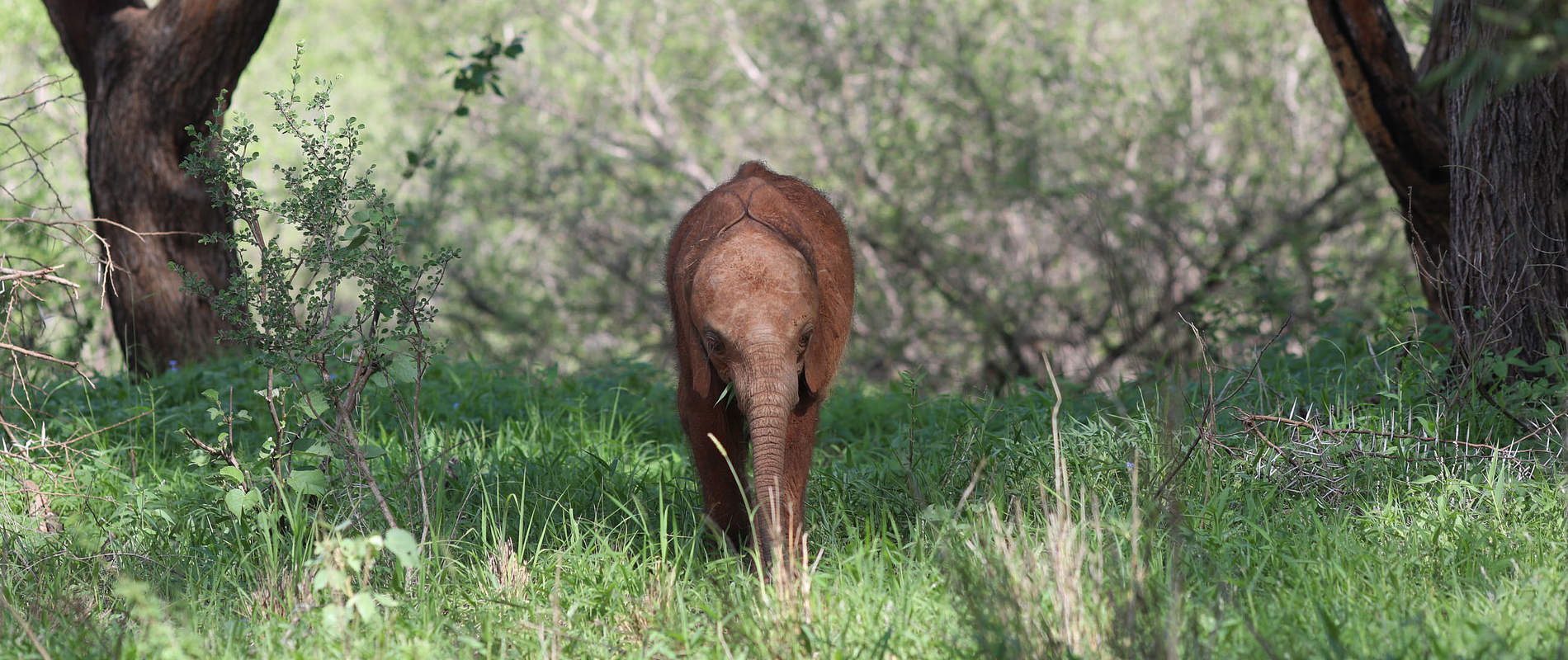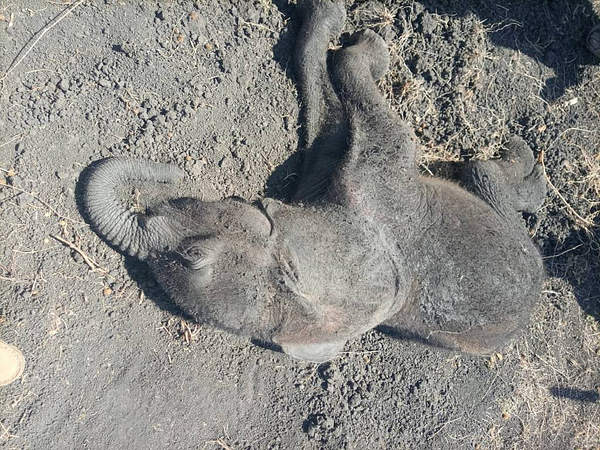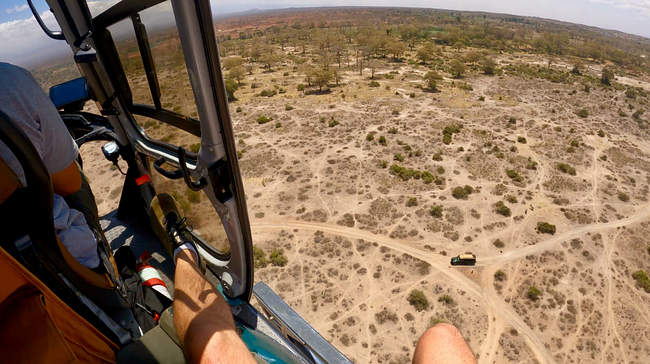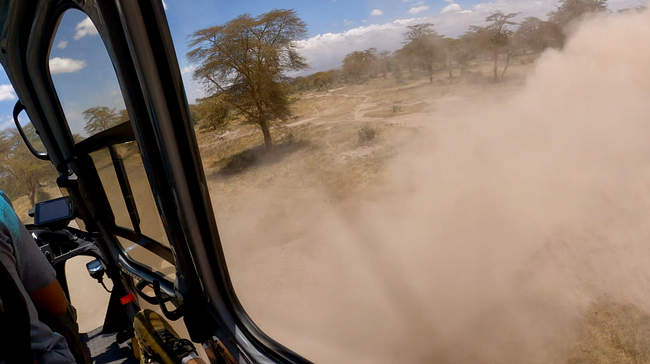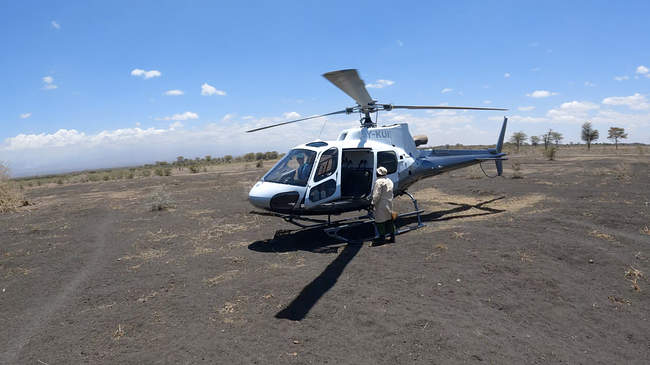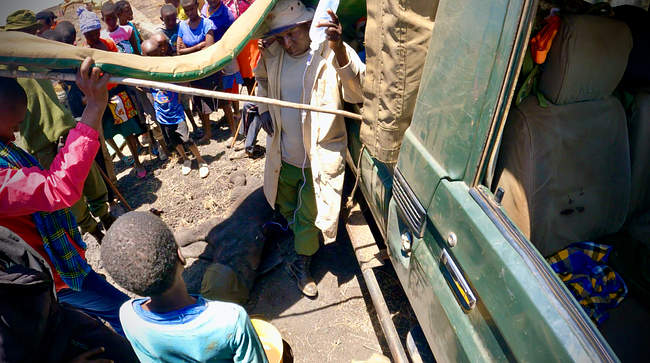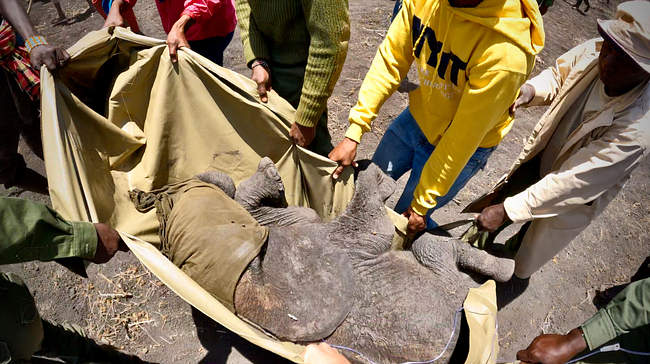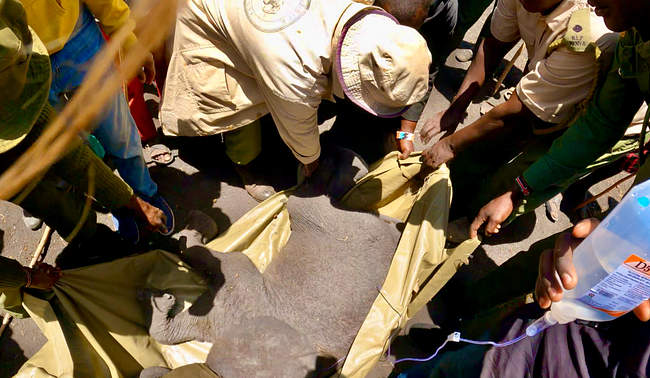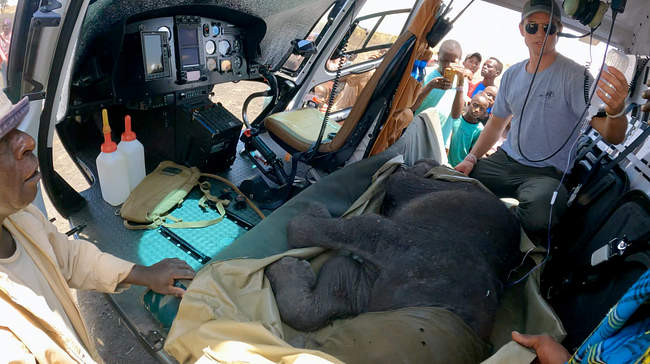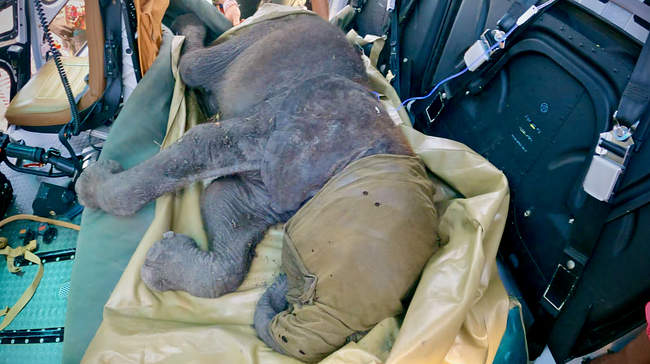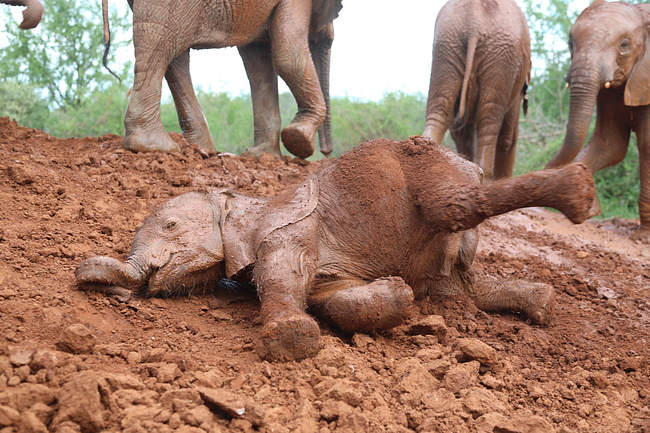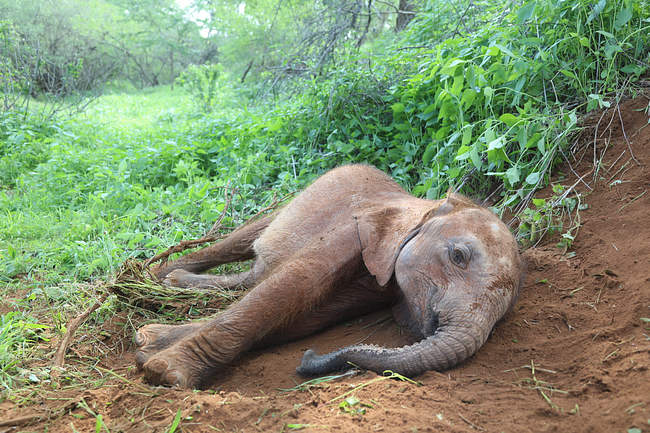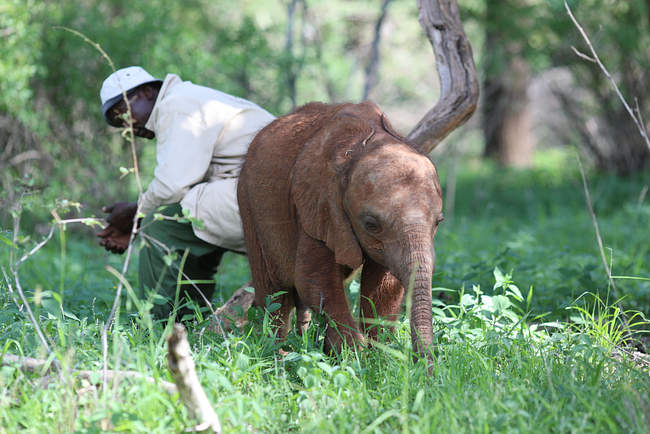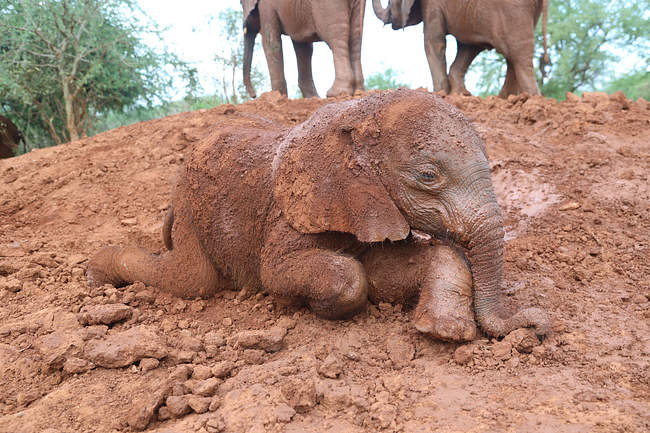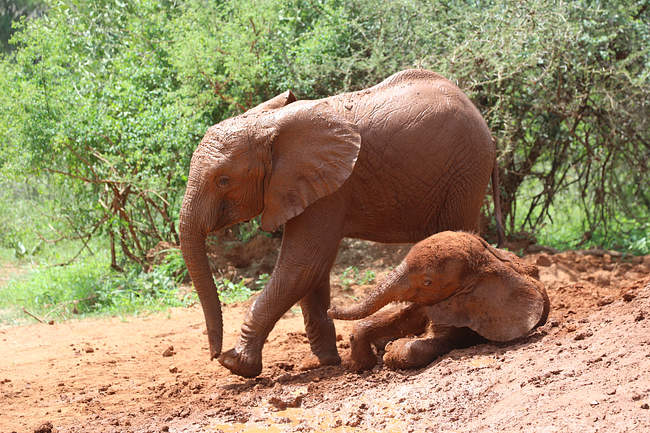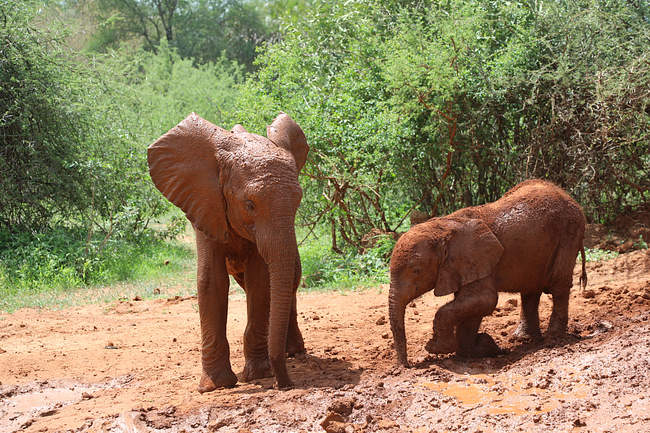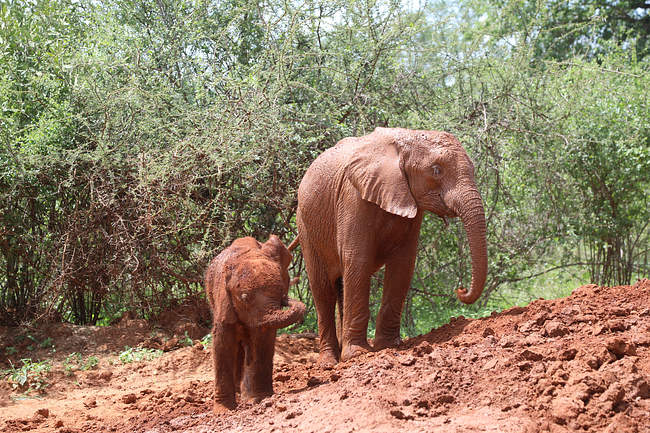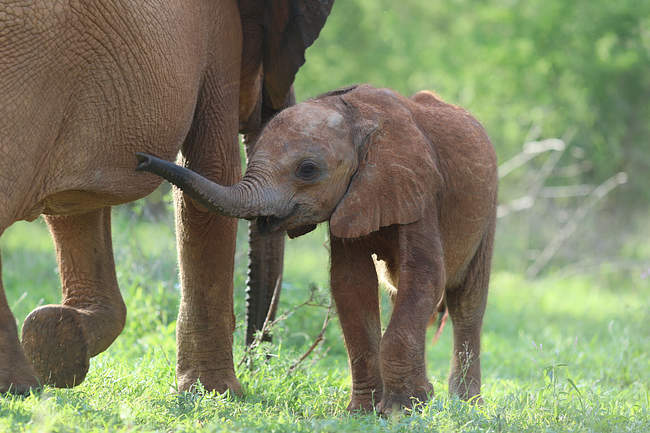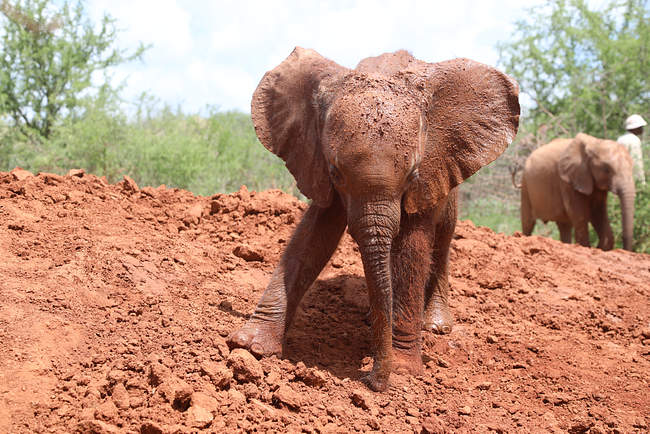Mwinzi is our drought miracle. Born in the shadow of Africa’s largest peak, Mount Kilimanjaro, he is a behemoth himself — a truly larger-than-life character in a tiny body. Mwinzi’s story began on 19th September 2022, at a dire time for Amboseli. Months of drought had taken their toll on the ecosystem, evaporating food sources and turning the landscape into a veritable dust bowl. Set against this challenging backdrop, little Mwinzi nearly lost his life just as it was beginning.
Craig Millar of Big Life reported an abandoned infant elephant in Kimana. Weakened by the drought, he had gotten stuck in mud and couldn’t extract himself. Members of the local Maasai community had managed to free him, averting one potential death trap. However, things were still looking bleak for the calf. He was in very precarious condition and promptly collapsed upon reaching solid ground.
Knowing there wasn’t a minute to spare, we mobilised a rescue team from our Kaluku Field Headquarters. Landing in Kimana, they were faced with a heartbreaking sight that had become all-too-familiar during the drought: yet another elephant, lying unresponsive beneath the baking sun.
The team was grappling with a difficult juggling act, because they also had to respond to another urgent field emergency in Amboseli. They came up with a plan to buy some time, flying Justus, one of our Keepers, and the calf to a quiet corner of Kimana Sanctuary. Setting the calf beneath a shady tree, they administered IV drips and left him in the good hands of Justus while they responded to the other case.
The helicopter returned an hour later — and nothing could have prepared them for the scene that greeted them! To their absolute astonishment, the comatose baby had miraculously sprung to life in their absence. He was wandering around with Justus following behind, remarkably keeping the drips intact. In the span of sixty minutes, the orphan had gone from all-but-dead to up and mobile.
“He is my biting elephant!” exclaimed Justus. As is procedure, he had felt inside the calf’s mouth to see if he had gone through teething yet. This can be quite a fraught investigation, but given how unresponsive the elephant was, Justus figured it was an opportune time to check. Much to his surprise, however, the little chap chomped down on his finger — vehemently affirming that he did in fact have teeth and that he was not so comatose after all! Fortunately, Justus has quick reflexes and was uninjured.

After his grand debut, we knew that we were dealing with a tiny fellow who had a very big attitude. Mwinzi rocked up at our Kaluku Neonate Nursery with zero reservations. Despite being dwarfed by a menagerie of orphaned buffalo, eland, giraffe, rhino, and other elephants, he was completely undaunted. No one knew quite what to make of this audacious little bull! He charged after the buffalo, inserted himself in between Rokka, Manda, Mayan, and Vaarti, and butted into every gathering. Simply put, he exploded onto the scene.
Mwinzi has captured the hearts of everyone at Kaluku. He has brought out the most wonderfully nurturing side in Rokka. She is smitten with the young bull and loves to fuss over him. Mwinzi has also become good friends with our ‘gentle uncle,’ Mayan — much to Rokka’s chagrin! Whenever she catches the boys together, she quickly interrupts their together time.
Neonates are notoriously tricky to raise. Although a couple of Mwinzi’s molars had grown in by the time we rescued him — as Justus discovered the hard way — he was not yet out of the woods with teething. We braced ourselves for a fraught few months, but shockingly, Mwinzi sailed through. Aside from his early rounds of drips, he never gave us a spot of trouble.
What makes some neonates sail through while others struggle? Sometimes, it’s just the way the deck is stacked — but with Mwinzi, we can pinpoint exactly what helped him survive. From the outset, he ate greens voraciously. As a milk-dependent infant, most of what he was consuming passed right through, but it still provided nutrients to keep him strong and healthy through the teething stage.
We suspect that Mwinzi had been eating greens long before we rescued him. As the drought wore on, his nutrient-deprived mother likely stopped producing milk. Mwinzi saw elephants around him eating greens and, rather than wither away, he started eating opportunistically. This survival response saved his life.

Now, Mwinzi’s days of deprivation are behind him. He has a constant flow of milk at his disposal, but still he remains obsessed with greens. Most orphans his age pick at branches with varying degrees of interest; Mwinzi feasts with unbridled delight. If his stable is not filled to the brim with greens, he throws a temper tantrum and bangs on the door until his Keepers deliver an adequate quantity. Peeking inside the jungle that is his bedroom, it’s often hard to spot the tiny elephant munching away amidst all the leafy branches. Unsurprisingly, he has become delightfully plump.

This year, we witnessed more tragedy than we would ever want to see. However, we have also been part of some extraordinary miracles. Mwinzi is one of them. His name is a play on Mawenzi, one of the highest peaks of Mount Kilimanjaro. It is both a nod to the sky-high odds this remarkable bull has overcome and a tribute to the landscape where he was born.

